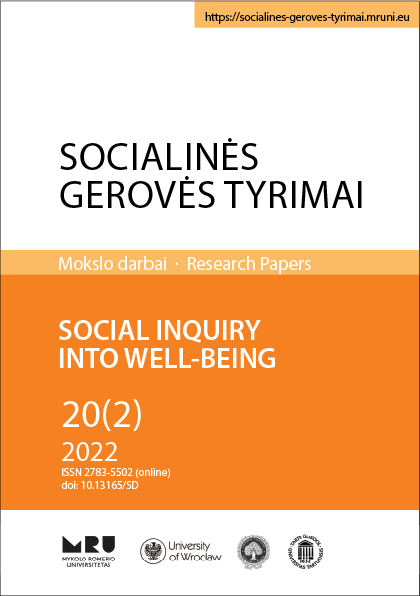CHALLENGES IN THE LITERATURE SEARCH DURING THE PROCESS OF CONDUCTING A SYSTEMATIC LITERATURE REVIEW FOR THE CONCEPTUALISATION OF CRITICAL THINKING
##plugins.themes.bootstrap3.article.main##
Abstract
This article discusses challenges in the literature search during the process of conducting a
systematic literature review for the conceptualisation of critical thinking. The literature search process
is described in two interconnected stages: the selection of journals and the sampling of articles.
Analysis is followed by discussion, which also includes the subjective reasoning and reflections of the
project team. The process of searching the relevant literature for a systematic literature review was
presented in order to discuss the initial stage before literature analysis that very often remains a “grey
area” and is still underrepresented in the literature. The process of selecting journals and sampling
articles was impacted by objective limitations such as language and availability of access of material,
as well as by subjective limitations which required flexibility in adjusting the envisaged research
plan. These factors led to the unique path by which the research team processed the search and coped
with methodological challenges. Some lessons, like the necessity of additional time, were already
known and experienced during earlier research; however, they showed themselves in other aspects.
Some lessons, such as not limiting the literature review to articles from Q1 journals, were new and
unexpected, and led to the decision to discuss these challenges, thus enriching a very limited analysis
on methodological issues of the literature search process for the term conceptualisation. This article
focuses on how material on critical thinking for the literature review was sought, rather than the
content that was found. This experience is intended to broaden the understanding of the initial
phase in a systematic literature review process and to help increase awareness of what preparation
for a literature review actually means.
##plugins.themes.bootstrap3.article.details##
Mykolas Romeris University retains copyright ownership and publishing rights. Authors contributing to Social Inquiry into Well-Being agree to publish their articles under a Creative Commons Attribution 4.0 International Public (CC BY) License.![]()







